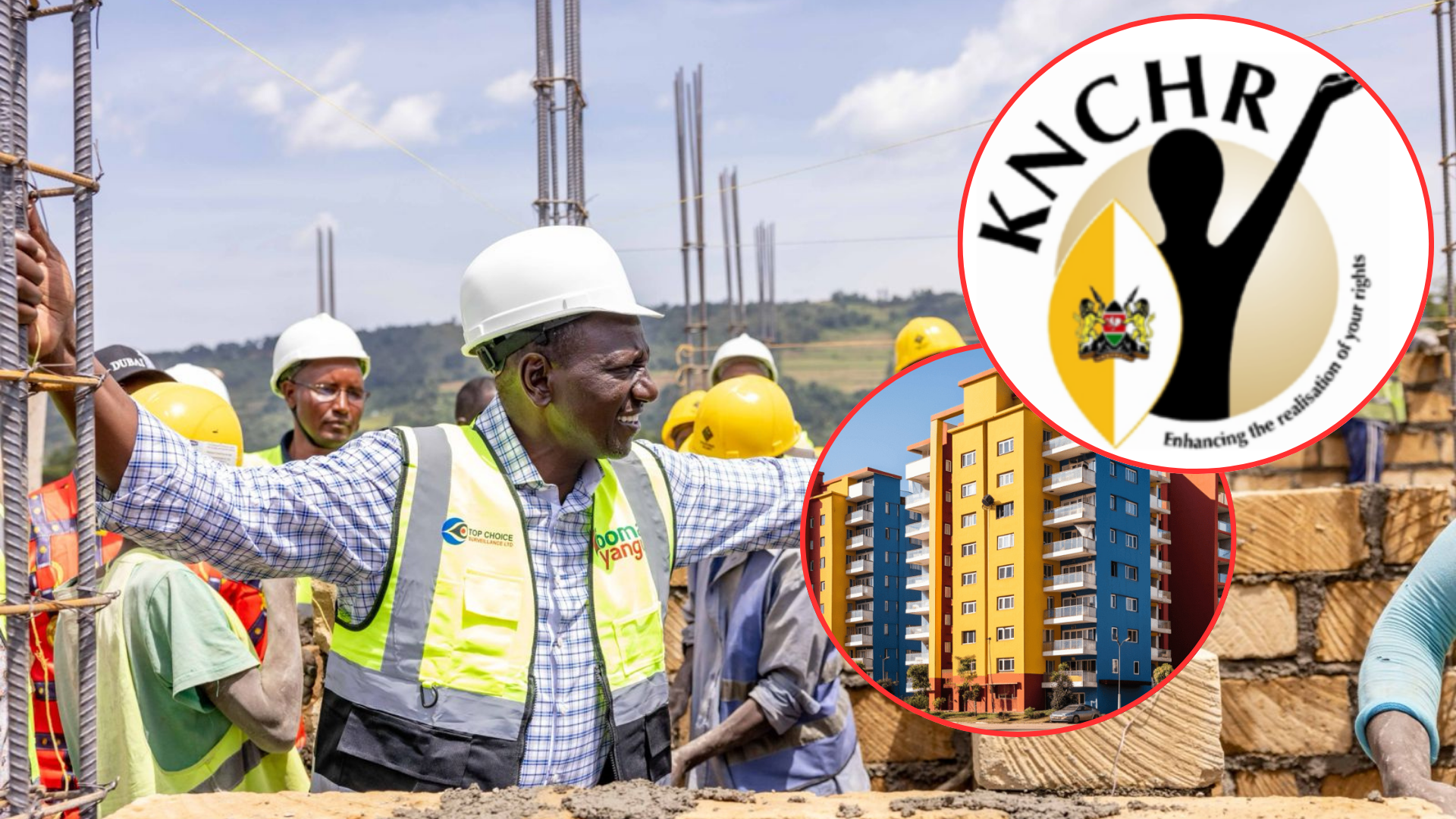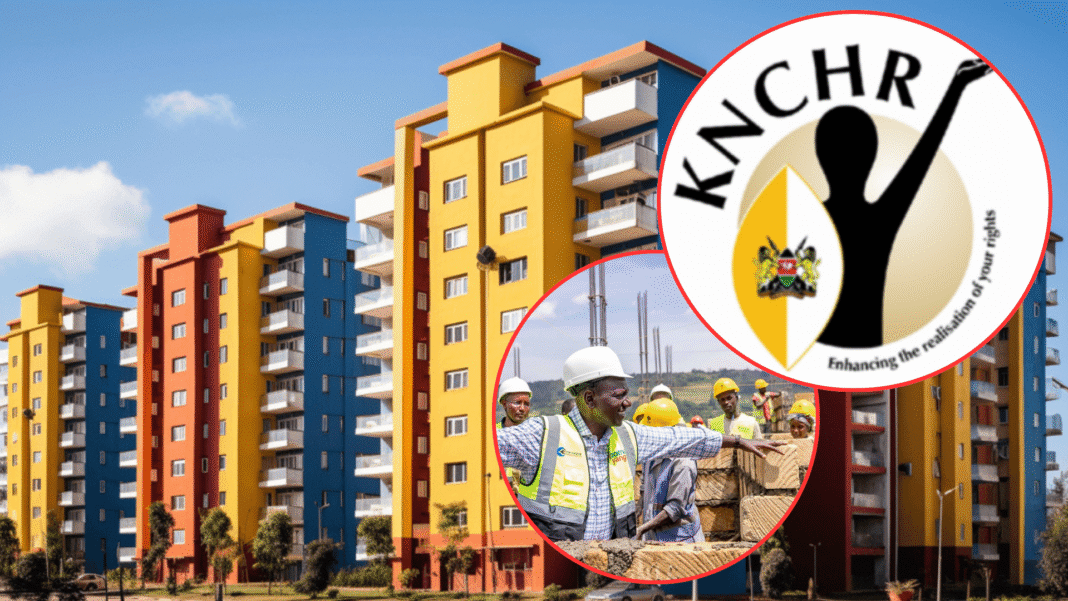President William Ruto’s flagship affordable housing agenda is facing yet another major legal hurdle. On Friday, the Kenya Human Rights Commission (KHRC) and several lobby groups filed a strong petition at the High Court seeking to suspend the controversial housing levy.
They argue the 1.5 percent salary deduction has worsened poverty, stripped workers of disposable income, and turned into a tool for political patronage. If the petition succeeds, it could halt deductions that have already drained Kenyan pay-slips for months.

Petition Against Housing Levy Intensifies Court Battle
The Kenya Human Rights Commission, Transparency International Kenya, Institute for Social Accountability, Inuka Kenya Ni Sisi, and Siasa Place joined forces in filing the petition. They insist the levy is unconstitutional, unlawful, and socially retrogressive.
In their documents, they argue that salaried Kenyans already carry the heaviest burden of statutory deductions, yet they continue to be targeted unfairly. The lobby groups say the housing levy has done little to advance the constitutional right to housing, while excluding millions of Kenyans in the informal sector.
The petitioners singled out President Ruto’s move to allocate 20 percent of housing units to teachers and Harambee Stars players, accusing his administration of turning the levy into a tool of political patronage. They told the court the fund has been repurposed to reward allies, not to serve the public.
Their filing seeks a declaration that key provisions of the Affordable Housing Act are null and void. They describe the levy as unconstitutional because it strips Kenyans of income needed for food, healthcare, and education.
Economic Burden of the Housing Levy
The petitioners relied on data from the Kenya National Bureau of Statistics to show the harsh impact of the levy. More than a third of Kenyans live below the poverty line, and rising food inflation has worsened the situation. Stagnant wages mean the deductions cut deep into household budgets already stretched by high living costs.
The groups also highlighted the poor performance of the construction sector. According to the KNBS Economic Survey 2025, the sector contracted by 0.7 percent in 2024, compared to 3 percent growth in 2023. This decline, they argue, is tied to high input costs, reduced private sector investment, and reduced consumer spending due to the levy.
They claim the levy is not only punitive but also counterproductive, leading to economic retrogression instead of growth. For many Kenyans, the deduction feels like yet another tax disguised as a social good, but without tangible results.
Previous Court Ruling and New Petition
In October 2024, a three-judge bench upheld the levy after petitioners argued it lacked public participation and infringed on property rights. However, KHRC and its partners insist their fresh case rests on different grounds. They say the new petition focuses on violations of economic rights, unfair administrative actions, and the politicisation of public resources.
The respondents in the petition include the Treasury Cabinet Secretary, the Lands Cabinet Secretary, the Affordable Housing Board, and the Kenya Revenue Authority. The petitioners want the High Court to suspend all ongoing deductions and declare the law unconstitutional.
By challenging the levy again, the groups are putting President Ruto’s affordable housing plan on the line. If the court rules in their favor, the administration will not only lose billions in projected funds but also face political embarrassment over one of its flagship projects.
Conclusion
The petition against housing levy deductions has reignited public debate about President Ruto’s economic agenda. Salaried workers, already squeezed by high costs of living, view the levy as unfair and poorly designed.
For lobby groups, the case is about more than payslips—it is about protecting constitutional rights and fighting misuse of public resources.
If the High Court suspends the levy, it will be a major blow to the Kenya Kwanza administration and a victory for millions of workers who feel abandoned in the struggle to survive.


